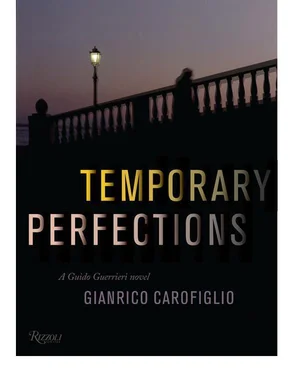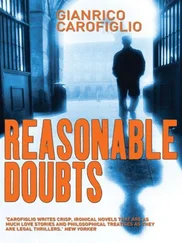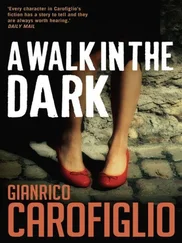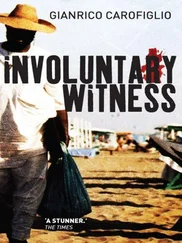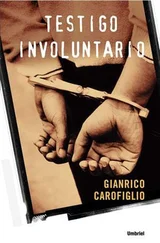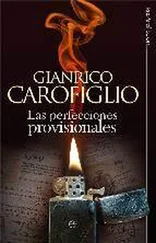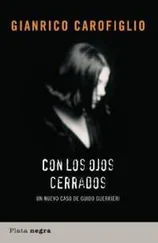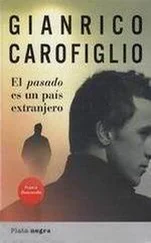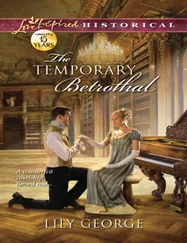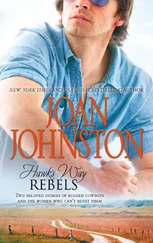“Right. For me, another rule has to do with lies. You should try to tell as few lies as possible to other people. And none to yourself.”
He thought for a few seconds, then added, “Which is of course impossible, but you should try at least.”
The port, awash in opaque sunlight and unseasonably muggy heat for May, slowly dissolved as the lights of the city and the frantic chaos of evening traffic reappeared. Tancredi’s words shimmered out of that seascape and into my car, where they stayed, hovering in midair.
You’re wetting your pants at the idea of meeting the girl’s parents and giving them the news. So you look for excuses and you tell lies. To yourself, which-as we were saying-isn’t a good thing.
Isn’t it up to you to tell the parents? If not, whose job is it?
No one else’s job but mine. End of discussion.
I stopped thinking. From then on I did everything as if in a trance, and it all came easily to me. I called Fornelli, explained the bare essentials to him, and told him I’d drive by his office to pick him up so we could go see Manuela’s parents together. He might have wanted to say something or raise some objection, but I didn’t give him time. I hung up and started the car for what seemed like the thousandth time that day. I was about to experience the worst part of the whole horrible story.
When we got to the Ferraros’ house, they were expecting us. Fornelli had called ahead, and when I saw their faces, I knew they already understood what was coming.
For the third time in less than two hours, I told the story of what I had found, and what had happened to Manuela.
I told them almost everything.
I kept a few parts of the story to myself. The fact that Manuela was a coke dealer, and the way the young couple disposed of her corpse. I decided that I had the right to spare myself that agony, at least. Of course, sooner or later they’d find out everything, down to the last cruel detail. Not that evening, though, and not from me.
When I said that Manuela was dead, Rosaria Ferraro rested her head in her hands, and I thought she was going to scream. But she didn’t. She just emitted a muffled sob and then remained motionless for a long time, her head in her hands and her mouth half-open, in a still image of mute, infinite, intolerable sadness.
Antonio, aka Tonino, Ferraro was seated slightly behind her, leaning on a table. Tears started running down his face, and then he began to sob. And there I sat, watching and listening, because there was nothing else I could do.
Luckily, it didn’t take long. Three quarters of an hour after I walked into the Ferraro’s house, I was back in my car. I dropped Fornelli off after helplessly sitting through a long monologue about how amazing it was that I had discovered what I had discovered, and how I would have to tell him all the details in the coming days. And, of course, I should represent the family as civil plaintiffs in the upcoming trial, he said, as we shook hands.
Absolutely not, I replied. He’d need to find another lawyer. Something in my voice, or my face-or both-must have dissuaded him from trying to change my mind, or even asking me why.
I walked into my apartment; I felt enveloped by, and pervaded with, a perfect, throbbing exhaustion.
I greeted Mister Bag and told him that I would be with him in two minutes, no more. I walked into my bedroom, calmly undressed, and carefully and thoroughly taped up my hands. Then I put on my gloves. There are times when you have to do things right.
I boxed for half an hour. I was loose and I was quick, as if the exhaustion and other things that I carried inside me-things much worse than exhaustion-had been transformed into a fluid and mysterious energy.
Then I took a long hot shower, soaping myself with an amber-scented bath foam that I’d bought years earlier but never opened because I was waiting for the right occasion. The right occasion had never arrived.
When I walked back into the living room, in my bathrobe, I said out loud that I didn’t want to be alone that evening, and that I intended to go see Nadia and old Baskerville.
“Forgive me, Mister Bag, it’s not that I don’t enjoy your company. Quite the contrary. It’s just that sometimes, you really can be a little too taciturn.”
Once I got outside, I realized that the city had turned silent, and the wind had died down, leaving only a slight scent of the sea in the air. The night once again seemed like a tranquil, welcoming place.
So I got on my bike and started pedaling fast down the deserted street.
